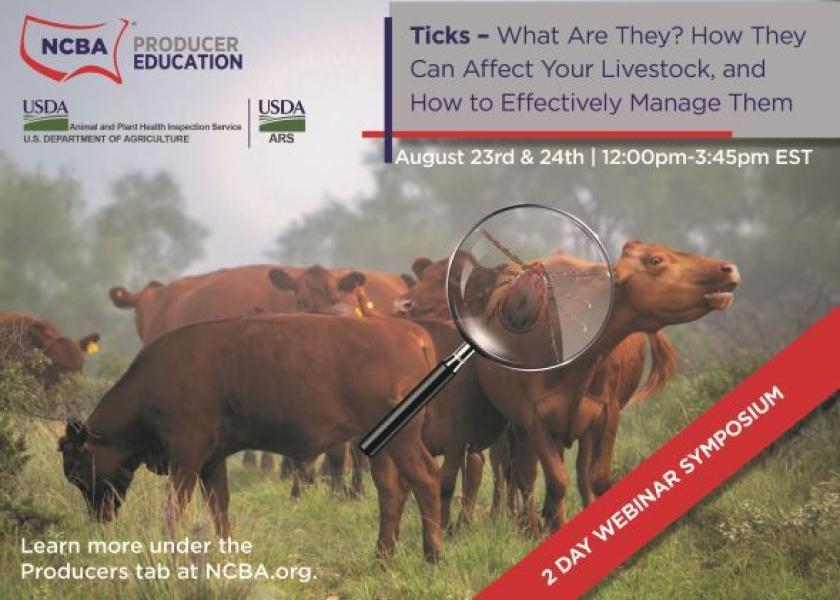Asian Longhorned Tick Questions to be Answered in Upcoming Webinar

Ticks have become a common topic of conversation in the cattle industry, not only for giving people a red meat allergy after a tick bite, but for the affect they might have on a cattle herd.
The Asian Longhorned Tick, historically, was found in the northeast region of the U.S.
However, recent findings show the population is expanding.
To help increase understanding of the species, the National Cattlemen's Beef Association (NCBA), along with the USDA's Animal and Plant Health Inspection Service and USDA's Agricultural Research Service, will be hosting a two-day, virtual tick symposium.
This webinar is for cattle producers, state animal health officials, veterinarians and other industry stakeholders interested in learning how to identify the Asian Longhorned Tick and better manage its associated diseases and spread, said a NCBA release.
Set to stream on August 23 and 24, the webinar will focus on the Asian Longhorned Tick and its potential impact on the U.S. cattle industry.
Additional topics to be covered include:
- Tick identification
- Emerging diseases carried by ticks
- Treatment options
- Mitigation measures
Registration for the webinar is now open through Monday, August 22 at 3p.m. EST.







